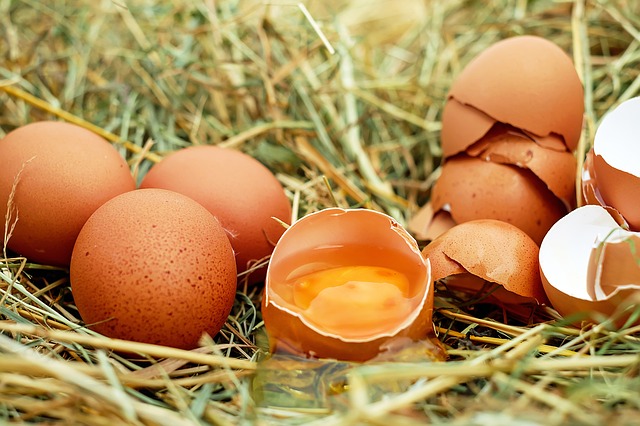Breakfast is touted as the most important meal of the day. It is the first food that you put into your body after the rest and repair of your sleep. It is what will set you up for the rest of your day. And more often than not it is the one meal that people give the least amount of time and thought to.
Most breakfast foods unfortunately do a poor job of setting you up for an awesome day. Even healthy options are often full of simple sugars, either naturally occurring, like those in dried fruits, or added, like honey, and starches. These wake up our sugar dragons that take us on a whirl-wind rides of highs and lows for the entire day.
Fortunately, Mother Nature has provided us with the perfect breakfast food. Eggs.
Scrambled, poached, boiled (soft or hard), fried, baked. In omelettes, frittatas, quiches. Did you know you can make pancakes with just eggs and bananas? There are so many options that you could have eggs for breakfast every day of the week and have a different breakfast every day. And boiled eggs (soft or hard) are the perfect snack when travelling.
Nutrition Packed
Nutritionally, eggs are incredible. Eggs contain a moderate amount of protein. In just two large eggs, you receive about 12 grams of protein. The impressive part is that protein contains 18 different amino acids, the building blocks of protein. And it is easily digestible.
The yolk is a remarkable powerhouse of essential vitamins and minerals, and a good balance of healthy fats. Egg yolks contain most of the B vitamins, vitamins A, E, and even vitamin D. And two eggs will provide you with more than 40% of your daily requirement of selenium. The fat in the egg yolk is a combination of monounsaturated, polyunsaturated, and saturated fat. Eggs contain both omega 3 and 6 fatty acids, however the levels of each depend on the health of the chicken.
Buying Eggs
It is important when you are buying eggs to find a really high quality source in order to get the best possible nutrition from your eggs. The colour of the shell and the colour of the yolk are not indicators of the nutritional value of the egg, nor is the label. There are very few regulations on labeling for eggs, and the regulations are regional. This means that eggs labeled as organic in one place may guarantee that the chickens have access to suitable outdoor forage, whereas in another jurisdiction, this may not be the case.
The best place to buy your eggs is directly from a farmer.
This is getting easier and easier with so many backyard chicken farmers popping up. Go to your local farmer’s market and ask the egg farmers some questions. What are they feeding their chickens? This is probably the most important question.
Most commercial chicken feed is primarily soy and corn. If the farmer is not buying certified organic feed (which is about twice the cost of conventional feed) then the chickens are most likely eating GMO soy and corn. Access to the outdoors is vitally important, and great second question. A chicken’s diet should include lots and lots of insects as their main source of protein. If the chickens are not foraging on healthy pasture, then they are not likely getting many bugs and their diets must be supplemented with inferior vegetable protein.
I have noticed recently that some chicken meat and eggs is labelled as being fed 100% vegetable feed. Chickens are omnivores, not vegetarians. They eat bugs, lots of bugs, and worms, and slugs. I’ve even seen them eat small rodents. Laying chickens require about 18% protein in their diet. Trying to get all of their protein needs met through vegetable sources alone mean that the chickens are likely being fed soy.
If you are tying to optimize your health by including eggs in your breakfast routine, then make sure that you are searching out the best possible source for your eggs. And if you cannot find one, then consider raising a few chickens in your own backyard. It is just as easy as raising a puppy and they make great pets!


